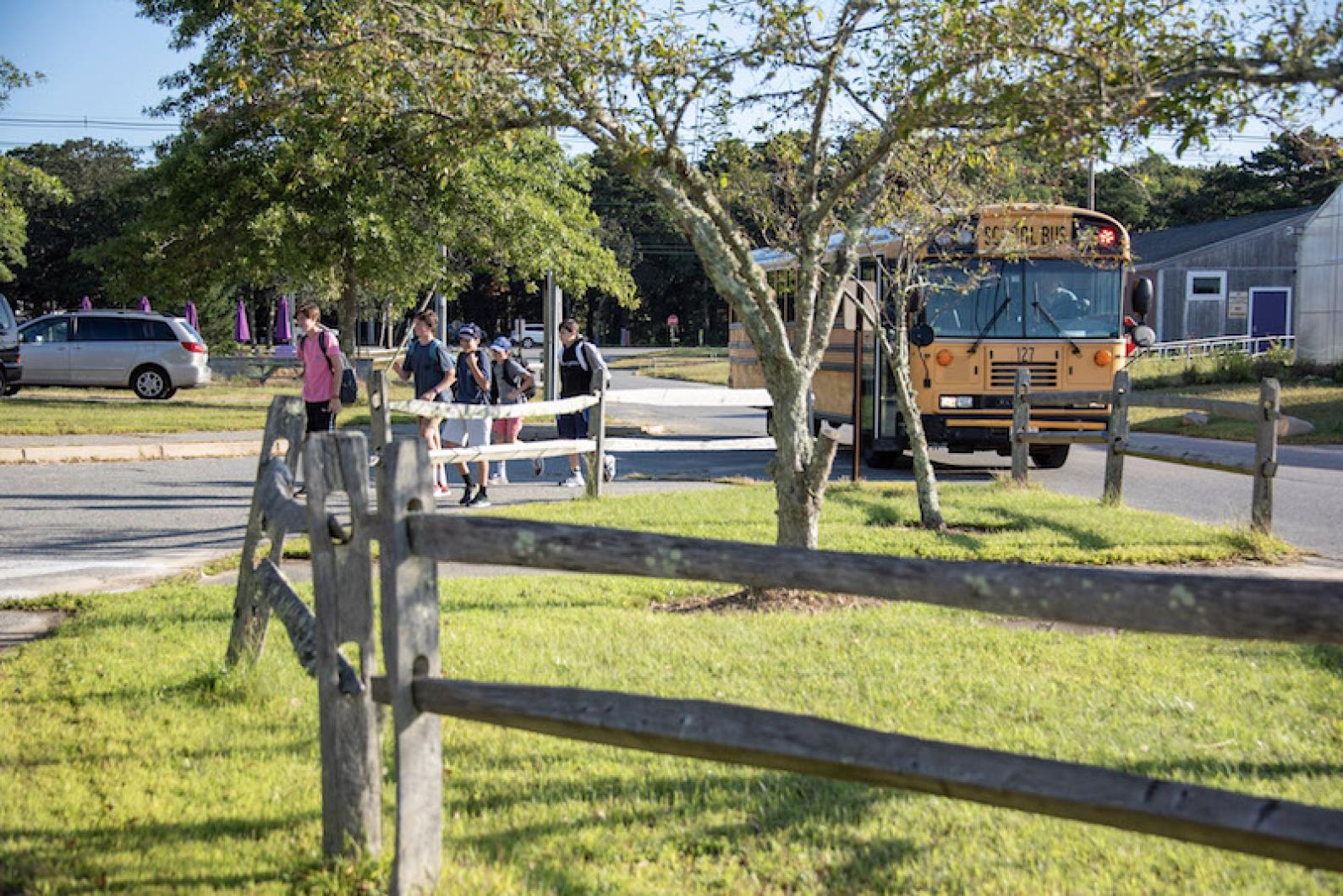At a special town meeting next month, Tisbury voters will be asked to approve emergency funding for temporary classrooms and unforeseen expenses related to the relocation of elementary school students this fall.
After flaking lead paint was identified in August in about a dozen school rooms, town and school leaders decided to seal off areas of the 1929 building and move students.
The special town meeting is scheduled for 7 p.m. Oct. 15 in the school gymnasium.
There are two articles on the warrant. The first is a request for $1.5 million from the town stabilization fund for the installation of modular classrooms. The funds could also be used for design services and a project manager.
The second article seeks approval for taking $450,000 from the stabilization fund to support the temporary operation of the school in two locations. Currently, students in grades five through eight are being taught in classrooms in the regional high school, and students in grades kindergarten through four are taught in rooms in a newer wing of the Tisbury School. The funds could also be used for partial sealing and remediation of areas of the school.
With state approval, the town has already begun spending unbudgeted funds to cover extra expenses related to the operation of the school. Finance director Jon Snyder petitioned for emergency clearance from the state Department of Revenue to use the funds before town meeting.
“We immediately started taking steps to deal with it,” Mr. Snyder said, speaking of the many issues around relocating students. “That costs money, and we couldn’t wait until special town meeting to appropriate that money.”
Vineyard schools superintendent Matthew D’Andrea said money is already going toward paying an additional school nurse, extra transportation costs, child care that was provided at the YMCA, and moving expenses.
Selectmen and the finance and advisory committee accepted the late-filed articles and closed the warrant at back-to-back meetings Wednesday night in the town emergency services facility across from the school. The meeting room is being used as a temporary cafeteria for younger students, and town leaders sat around children’s lunch tables, some labeled as nut-free.
Town officials said exact plans for where to educate students in coming months are still in the works. They said they are relying heavily on guidance from their recently hired owner’s project manager, Joe Sullivan of Daedelus Projects Inc.
“He already has been valuable in letting us know that it’s a far more complex exercise than just getting them over here. The easy part is bringing them over on a barge,” town administrator Jay Grande said, speaking of modular units.
The total amount of money in the town stabilization fund is estimated at about $2.9 million.
“The stabilization is exactly created for such an incident. We’re depleting it very quickly with just this one warrant article,” said finance committee chairman Mary Ellen Larson.
Mr. D’Andrea said despite the lack of concrete plans, he is confident $1.5 million will be sufficient at least initially to pay for modular classrooms.
“There are many details that need to be worked out,” the superintendent admitted. “Our goal is to get the students back in a healthy school as soon as possible. We’re working with Joe [Sullivan] to come up with a plan to get that done, and when we have that we will share that out.”







Comments (2)
Comments
Comment policy »